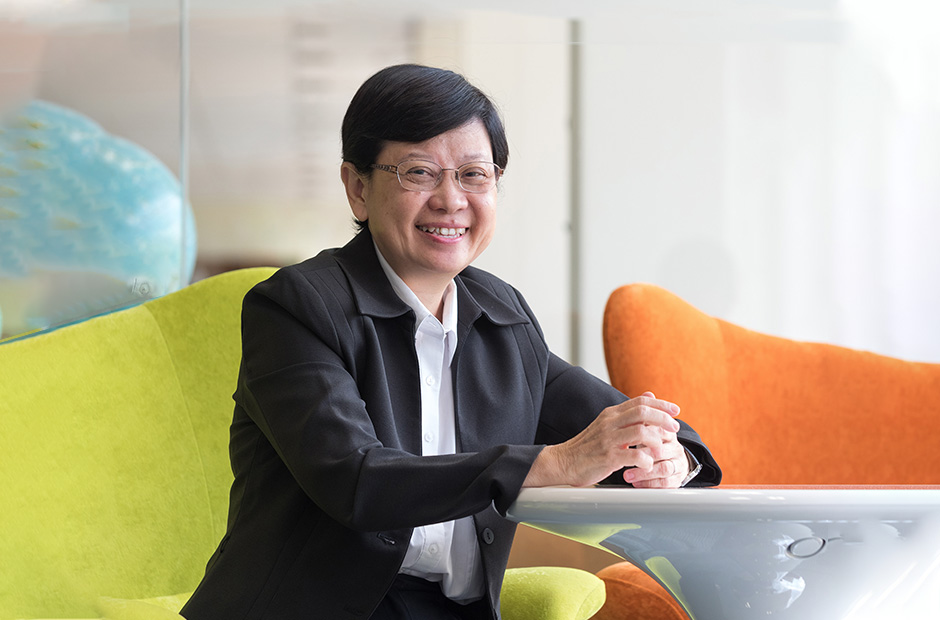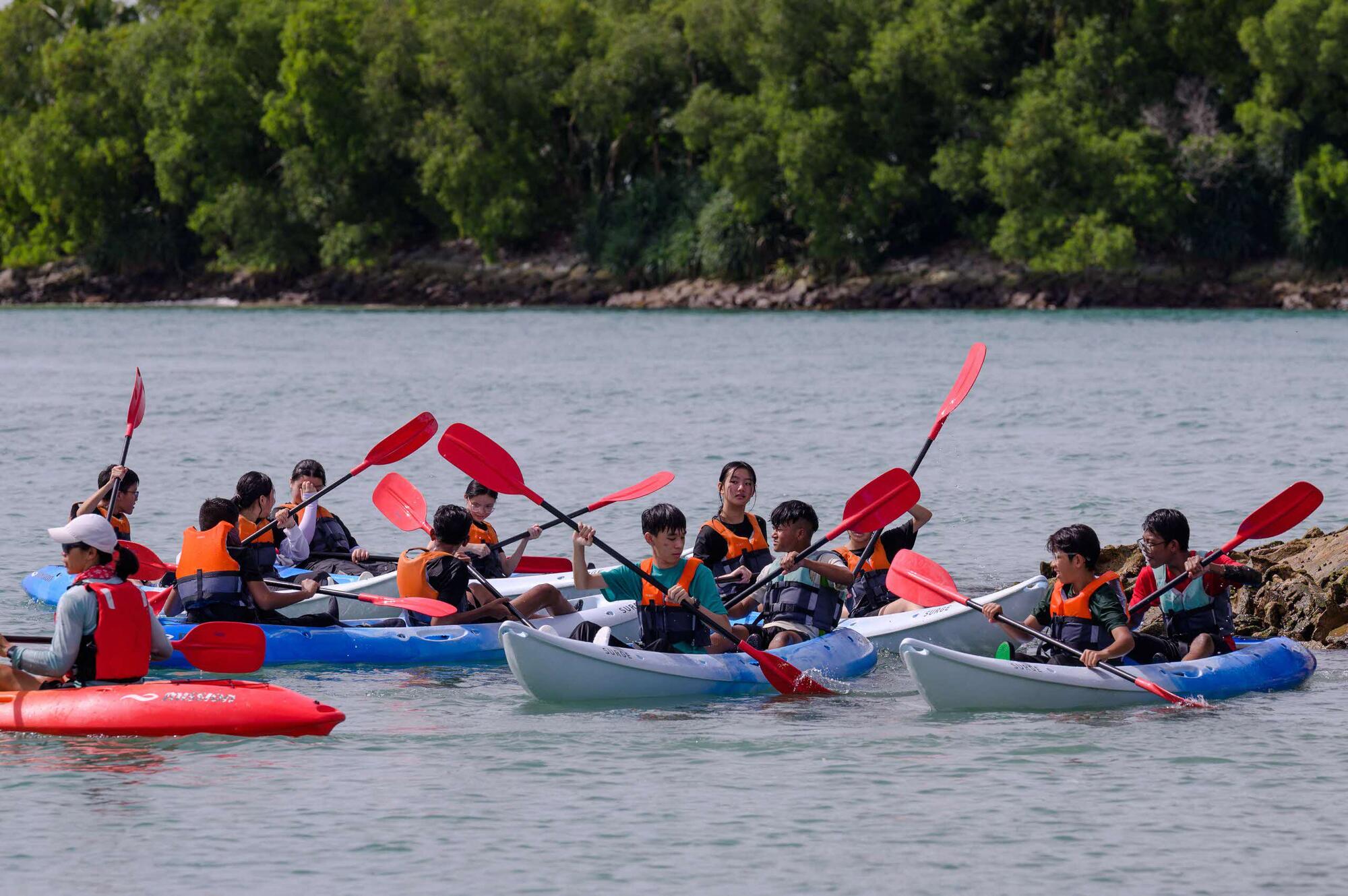Entering Primary 1 can be a big step for a child — and the parents. While parents often consider how well children learn their ABCs and numbers before they enter primary school, there are important skills that can prepare students for a better start to their school journey. Soft skills such as time management, self-control, focus, flexible thinking, social interaction, and perseverance will form a firmer foundation for learning and thriving in their school years and beyond. Mrs Marjorie Seek, a Senior Teacher (Lower Primary Learners) at CHIJ Katong Primary, shares with us why.
Skill #1: Time management
Teaching children about time management at an early age is crucial as it helps them plan and prioritise better as they grow older. Children would have learned about simple time management during their kindergarten days, such as completing a task before moving on to the next activity.
Mrs Seek said, “As children enter Primary 1, they are expected to follow a timetable on their own. Therefore, good time management helps them to pace themselves for the task at hand, complete tasks on time and keep track of what lies ahead.”
For instance, a child who can manage time well is able to finish up his food during recess and have ample time to play with his peers, which is so important for younger children. In this example, the child learns that if he wants to have time to play, he needs to make an effort to eat a little faster and not dawdle. In a classroom, good time management will enable a child to complete tasks on time so that he can have the ‘free’ time to read or draw.
“When children learn to manage their time, the value of self-discipline is also instilled in them; and with self-discipline comes self-control,” explained Mrs Seek.
Parents can practise at home by setting a time for the child to complete a task — like finishing up a meal — before he can play or use the computer, and stick to the plan. If the child takes too long to finish the task, then he gets lesser time for the desired activity. This way, he learns about consequences.
Skill #2: Self-control
Children need to develop self-control so they are able to adjust their behaviour as is required of them.
Mrs Seek said, “In class, children need to be able to refrain from talking among themselves when a teacher is speaking, or learn to raise their hand for a chance to raise a question or make a point.”
As they progress in school, children will also realise that self-control is a basic skill for socialising, such as turn-taking, while losing control — such as by throwing tantrums in anger — leaves them at risk of being led by their emotions, environment and by others.
“Making that co-relation between ‘cause and effect’ can lead to a happier learning environment for everyone, as well as for the child to stay focused on the task at hand,” explained Mrs Seek.
Likewise, parents need to make known to their child that there are consequences for actions resulting from a lack of self-control, and to follow through on the consequences if the child loses control.
Skill #3: Focus
A child needs to be able to focus in class, be alert to instructions and to follow them. A common example would be a child who misses out on writing the homework for the day in the journal, resulting in him not doing the task, and ending up with more homework to do the following day.
“At home, parents can also help their child to focus better by ensuring that the environment is conducive when the child is doing his homework — meaning no distractions like the TV or devices, or siblings running around,” said Mrs Seek.
“Practise giving your child simple instructions to jot down in a notebook at home and get her to carry them out. Even a simple baking session with mum or dad can help a child learn the importance of following instructions!”
Skill #4: Flexible thinking
Being flexible, which includes thinking on one’s feet, is one of the more difficult skills to help a child develop as it involves the cognitive part of a child’s development. This facilitates teamwork, problem-solving, and thinking of new ways to do something, all of which involves both academic and social skills.
Flexible thinking can be as simple as using any available object one can find to play hopscotch during recess. On an academic level, flexible thinking enables a child to see that there may be more than one way to solve a problem in Mathematics. For instance, a word problem on Fractions can be solved using model drawing, percentage or even ratio. Flexible thinking enables a child to use a formula or method they have learnt to solve new problems in other topics too.
Mrs Seek said, “To help develop flexible thinking, parents can start by role-modelling how to go with the flow when a plan or routine is interrupted. Show your child that it is alright to tweak routines sometimes, and not be rigid. It helps to talk to your child about these experiences and how to make the best of the situation. Play games with them and get them to verbalise their strategy or make up new rules — a fun way of promoting flexible thinking!”
Skill #5: Social interaction
Social interaction is not just about knowing how to make friends. It is also about working with one’s peers in a team where ideas are abundant and varied.
“Social skills such as taking turns and using a quiet voice are commonly used in classrooms, social norms which we, as adults, abide by in our day-to-day interactions with others at our workplaces or even at home. Such skills involve both verbal and non-verbal cues, like facial expression, body language and gestures,” explained Mrs Seek.
“Through social interactions, children learn manners and values such as respect and compassion. As they go on their education journey, they will have countless opportunities to practise social skills when interacting with others.”
Parents can help by being a good role model in showing empathy and respect to others in their interactions. Parents can also teach social skills through role-playing or simply spending time talking to their child about anything under the sun.
Put away the gadgets, computers, switch off the TV, and let the children play and have fun with other children.
Skill #6: Perseverance
With exposure to the internet through the mobile devices or gadgets we use, our children have grown accustomed to instant gratification. This results in the habit of giving up easily on tasks, goals, beliefs and dreams at the first sign of difficulty. It’s as if they developed a built-in detector for hard work!
The virtue of perseverance is crucial as it teaches our children to stick with a task and see it through. This skill of not giving up when they encounter challenges and obstacles will not only see them through their primary education but in life as well.
Perseverance teaches children to stay focused on a decision made or a goal to work towards, no matter how difficult the journey gets — it encourages them to ‘hang in there’ until the task is completed, or success is achieved.
As parents and teachers, we need to be generous with praise to encourage perseverance. Stop ourselves from focusing only on mistakes and look at the child’s strengths instead. Praise the effort and commitment, not just the results.
On the other hand, parents should not be too quick to jump in and help — let them struggle a little and when they succeed, the sense of achievement is even sweeter. A small but challenging task such as tying shoelaces can help children to learn that perseverance will pay off if they keep trying and not give up.
And there you have it — six skills to pick up on that have nothing to do with ABCs and everything to do with making the first year of primary school a smooth and enjoyable one. As parents, do lead by example and demonstrate these skills, such as what self-control or flexible thinking means, so that your child can learn by modelling your responses. Make these skills come alive at home and provide opportunities for your child to practise them, so that he or she will be able to apply them in school.



.jpg)


.jpg)